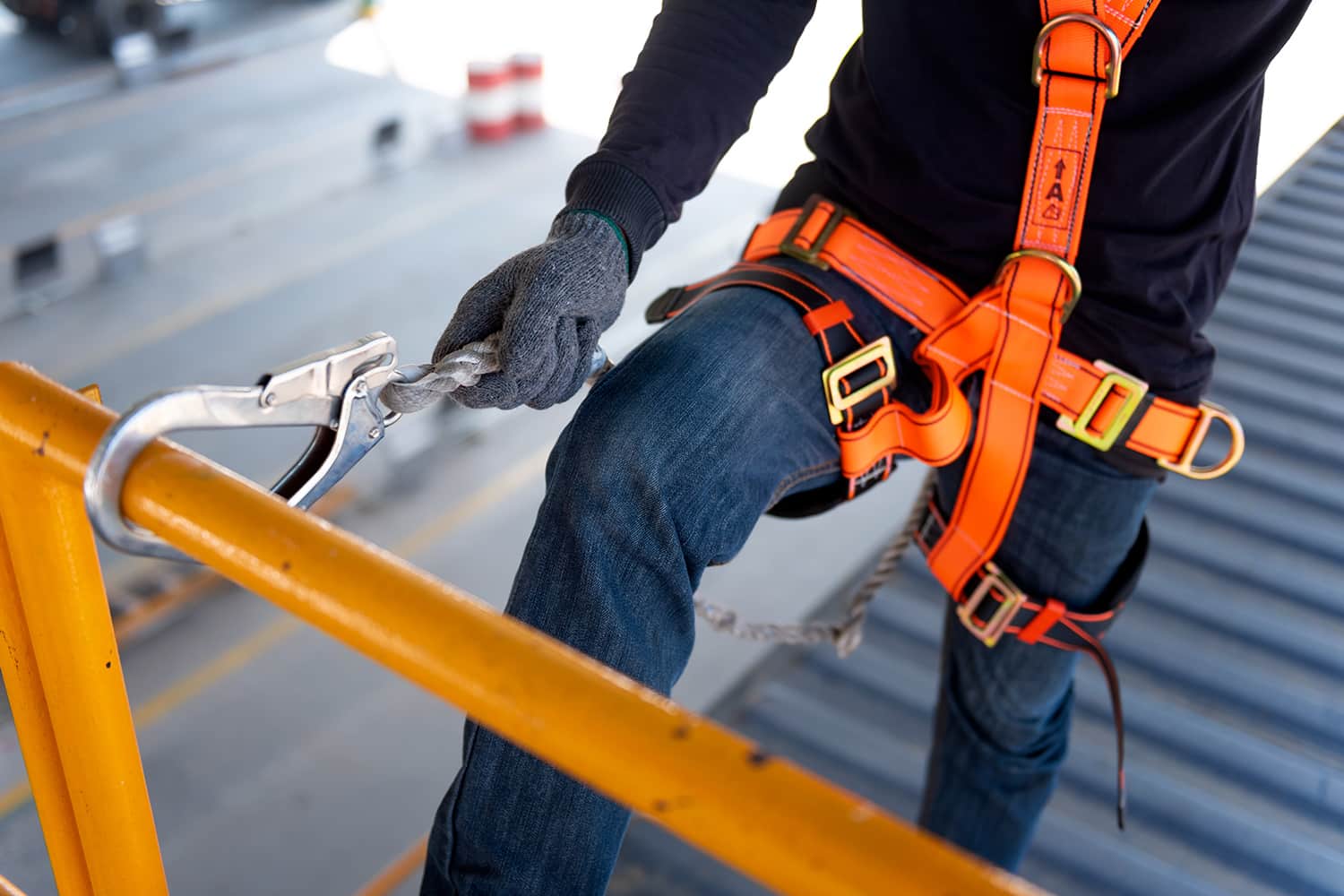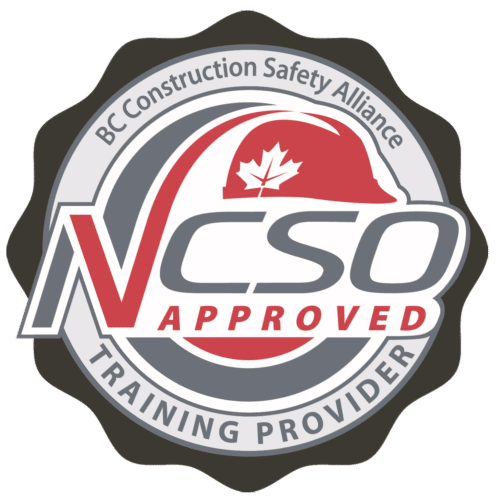fall protection training
- In Person
- Live Online
The Fall Protection User Training course by Haland Learning is a WorkSafeBC-compliant, NCSO-approved safety training program that teaches workers how to protect themselves when working at heights.
The training focuses on the regulatory and CSA requirements that matter most on the job: when fall protection is required, how different systems function, and how to identify hazards before starting work. Instruction is direct, structured, and hands-on, using the same equipment workers rely on in the field. The course is also NCSO-recognized, reflecting its alignment with widely accepted industry competency standards.
By the end of the course, participants know how to inspect fall protection equipment, fit a harness correctly, select an appropriate anchor point, and calculate free-fall and clearance distances. The goal is genuine competence, not memorization. Workers who meet the requirements receive a three-year Fall Protection User certificate confirming that they have the knowledge and skills expected for safe work at height.
- $250 / person
- Valid for 3 Years
The 3-year expiry is not a regulatory requirement (no matter what anyone else tells you). This is an industry best practice.
- 8 Hours
We budget for a full day of training. This isn’t a quick “put on a harness, then go home” course. It is a diligent training session.

- OHS Regulation Part 11 – WorkSafeBC Fall Protection Requirements
CSA / ANSI Standards for Fall Arrest and Restraint Systems
Hierarchy of Fall Protection Controls
Fall Protection Equipment Types, Capabilities & Limitations
Harness Fitting and Pre-Use Inspection Workshop
Fall Distance Calculations and Clearance Requirement
Fall Distance Calculations and Clearance Requirements
Fall Protection Plan Development & Employer Responsibilities
System Setup, Anchor Selection & Worksite Analysis
Harness Suspension Awareness (optional practical module)
English Language Requirement
This program has been reviewed by a third-party evaluator to ensure it’s accessible to a wide range of learners:
Reading level: CLB 8–9
Writing level: CLB 4
Our team continues to improve accessibility across all training programs to make sure everyone can understand and apply critical fall protection principles.
Accordion
This course meets or exceeds the fall protection training requirements in most Canadian provinces and territories, as the program is built around CSA Z1009:22 – Management of Work at Heights and CSA Z259 series standards.
However, it does not meet the specific “Working at Heights” training requirements of:
Ontario (Ministry of Labour, Immigration, Training and Skills Development – MOLITSD)
Newfoundland and Labrador (WorkplaceNL)
These provinces have their own mandatory, province-approved training programs.
Outside of Ontario and Newfoundland & Labrador, this course is generally recognized and accepted across Canada, though Haland Learning cannot guarantee acceptance by every local regulator or employer. We recommend confirming with your jurisdictional authority or safety manager before enrollment.
Content
It is helpful (but not mandatory) if the student has a full body harness that fits. If you’re taking the online course, you could bring:
- Lanyard
- Anchor Connector suitable for the type of work you do, and
- Measuring tape
If you’re taking the in-person course, no equipment or special PPE is required.
The online training is essentially the same as the in-person training in almost every way. The ONE thing we cannot do in the online version is the harness suspension (which is optional anyway).
We host the online course through an online platform (e.g. Zoom).
Materials get shipped to the students prior to class. Shipped items will come with a prepaid return shipping label for returning gear after the class.
- Fall Protection User Manual
- Damaged Equipment for the inspection activity
- Harness, Lanyard, and Anchor connector suitable for the work being done. THIS IS ONLY if the student does not already have this equipment on hand. This is an equipment LOAN to help the student have the best quality training materials available.
The certification card and hard had sticker will be mailed to the student (or client/employer) upon successful completion of the course, and RECEIPT of returned gear.
Students must have a computer (NOT just a smartphone), a private area while attending class and a high speed, stable internet connection.
Many safety courses are dry, not relevant, and boring. Really boring. If it’s not the course material, it’s the instructor. Some agencies believe they can talk AT you for hours and that you’ll somehow learn all the stuff.
We know from 20+ years of experience + current adult instructional knowledge this approach is woefully inadequate.
Every topic in the class is there for a reason. Each topic will have some type of activity the participants DO/INTERACT WITH in order to develop or confirm learning.
In summary… our courses are NOT boring. While it won’t be like going to Disneyland, participants will find themselves being engaged throughout the day, and they WILL learn something.
- Money. If there are 10 students in the market, with 7 needing the full course, and 3 needing the recert course… we’d have to run two training sessions, and we couldn’t justify running a session for only 3 people (or we’d go out of business).
- Quality. About 3/4 of the requests we get for recert training is from people that took fall protection from a different provider. Given there are no universally applied standards for fall protection training, it’s very likely the person didn’t learn the stuff we would’ve taught in the first place. Refreshing on something you never learned… doesn’t work.
- Time. We (Haland) only have so much horsepower. Every course takes effort to create, launch, and keep updated. We have to focus our energy where we get the most return. Recert training isn’t it.
- Overconfidence. Most students vastly overestimate how much they know from previous training. It becomes readily apparent they forgot 95% of what was learned 3 years ago. Doing a 1/2 day version would be a disservice to them.

